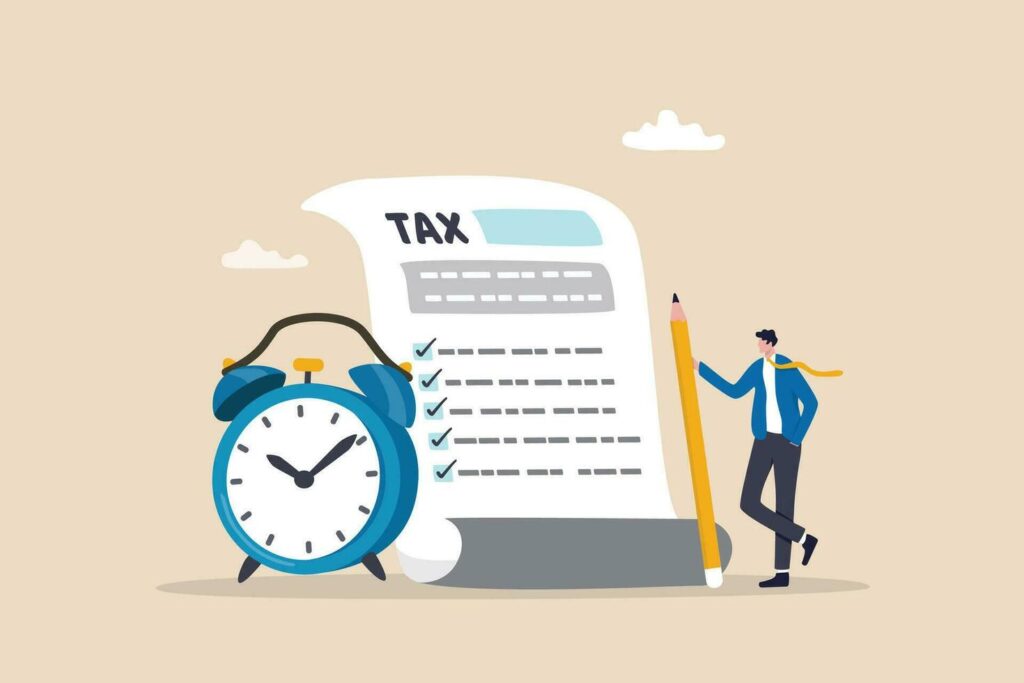Tax planning can be a complex and overwhelming task. However, with the right knowledge and strategies, you can navigate the tax maze and efficiently plan your finances. In this guide, we will walk you through the basics of tax planning and provide you with effective strategies to maximize deductions, minimize tax liability, and achieve financial goals.
Understanding the Basics of Tax Planning
When it comes to managing your finances, tax planning comapny plays a crucial role. It involves analyzing your financial situation, evaluating tax implications, and implementing strategies to optimize your tax position. The main goal of tax planning is to legally minimize your tax liability and retain more of your hard-earned money.
But what exactly does tax planning entail? Let’s delve deeper into this topic to gain a comprehensive understanding.
Tax planning is a proactive approach to managing your taxes. It goes beyond simply filling out forms and submitting them to the tax authorities. Instead, it involves careful consideration of your financial circumstances, future goals, and applicable tax laws.
One of the key aspects of tax planning is analyzing your taxable income. This refers to the portion of your income that is subject to taxation. By understanding how different sources of income are taxed and identifying opportunities to reduce your taxable income, you can effectively lower your tax liability.
See Also: Customized Plans for Financial Success

The Importance of Tax Planning
Tax planning is not just about saving money in the present, but also about securing your financial future. By strategically managing your taxes, you can enhance your overall financial well-being and increase your wealth over time.
Imagine a scenario where you have two individuals with the same income. One of them engages in tax planning, while the other neglects this aspect. Over the years, the individual who engages in tax planning will have accumulated more wealth due to the tax savings and investment opportunities they were able to leverage.
Additionally, proactive tax planning can help you avoid costly penalties and audits while ensuring compliance with legal requirements. By staying up to date with tax laws and regulations, you can minimize the risk of making errors on your tax returns and facing potential consequences.
Key Terms and Concepts in Tax Planning
Before diving into tax planning strategies, it’s essential to familiarize yourself with key terms and concepts. These include taxable income, tax deductions, tax credits, marginal tax rate, and more.
Taxable income is the amount of income that is subject to taxation after accounting for various deductions and exemptions. It is crucial to understand how different types of income, such as wages, dividends, and capital gains, are treated for tax purposes.
Tax deductions are expenses that can be subtracted from your taxable income, reducing the amount of income that is subject to tax. Common deductions include mortgage interest, medical expenses, and charitable contributions.
Tax credits, on the other hand, directly reduce your tax liability. They are typically based on specific actions or circumstances, such as adopting a child, installing energy-efficient systems in your home, or pursuing higher education.
Another important concept in tax planning is the marginal tax rate. This refers to the tax rate applied to the last dollar of your income. Understanding your marginal tax rate can help you make informed decisions about earning additional income or taking advantage of tax-saving opportunities.
By familiarizing yourself with these key terms and concepts, you will be better equipped to navigate the world of tax planning and make informed financial decisions.
Strategies for Efficient Tax Planning
Now that you have a solid grasp of the basics, let’s explore some effective tax planning strategies that can help you save money:
When it comes to tax planning, there are various strategies you can employ to optimize your financial situation. By understanding and implementing these strategies, you can reduce your tax liability and keep more of your hard-earned money.
Maximizing Deductions and Credits
One of the most effective ways to reduce your tax liability is to maximize your deductions and credits. Deductions, such as mortgage interest, education expenses, and medical costs, can lower your taxable income. Similarly, tax credits, like the Child Tax Credit or the Earned Income Tax Credit, directly reduce the amount of tax you owe. By taking advantage of these deductions and credits, you can significantly reduce your tax burden.
For example, if you own a home, you can deduct the interest you pay on your mortgage, which can result in substantial tax savings. Additionally, if you have children, you may qualify for various tax credits, such as the Child and Dependent Care Credit or the Child Tax Credit, which can help reduce your tax liability even further.

Income Shifting Strategies
If you have family members in lower income tax brackets, income shifting strategies can be beneficial. By transferring income-producing assets to family members with lower tax rates, you can effectively reduce your overall tax liability. However, it’s crucial to consult a tax professional and understand the legal requirements and limitations associated with income shifting.
Income shifting can be achieved through various methods, such as gifting assets, establishing trusts, or employing family members in your business. These strategies can help redistribute income and take advantage of lower tax rates, ultimately reducing your tax burden.
Investment-Related Tax Planning
Investment-related tax planning focuses on optimizing your investment portfolio to minimize tax consequences. This strategy involves considering factors such as capital gains, dividend income, and tax-efficient investment vehicles like tax-managed funds or tax-free municipal bonds. By strategically managing your investments, you can minimize taxable income and maximize returns.
For instance, if you have investments that have appreciated in value, you can implement tax-loss harvesting to offset capital gains. This involves selling investments that have experienced losses to offset the gains from other investments, thereby reducing your overall tax liability.
Furthermore, by investing in tax-efficient funds or municipal bonds, you can generate income that is either tax-free or subject to lower tax rates. This can help you minimize the impact of taxes on your investment returns and increase your after-tax income.
By incorporating these strategies into your tax planning efforts, you can optimize your financial situation and keep more of your money. Remember, it’s essential to consult with a qualified tax professional to ensure you are making informed decisions and complying with all tax laws and regulations.
The Role of Retirement Planning in Tax Efficiency
Retirement planning goes hand in hand with tax efficiency. By utilizing retirement accounts, you can benefit from several tax advantages:
When it comes to retirement planning, tax efficiency is a crucial aspect to consider. By strategically utilizing retirement accounts, such as 401(k)s or Individual Retirement Accounts (IRAs), you can take advantage of various tax benefits that can significantly impact your financial future.
Tax Advantages of Retirement Accounts
Contributions made to retirement accounts, such as 401(k)s or Individual Retirement Accounts (IRAs), can be tax-deductible. This means that the money you contribute to these accounts is deducted from your taxable income, reducing the amount of income tax you owe for that year. This tax deduction can provide immediate tax savings and allow you to allocate more money towards your retirement savings.
Additionally, these accounts offer tax-deferred growth, meaning your investments can grow without being subject to annual taxes. The earnings generated within your retirement accounts are not taxed until you withdraw the funds during retirement. This tax deferral allows your investments to compound over time, potentially resulting in significant growth.
Furthermore, when you withdraw funds during retirement, you will likely be in a lower tax bracket compared to your working years. This can result in overall tax savings. By deferring taxes until retirement, you can take advantage of potentially lower tax rates and keep more of your hard-earned money.
Early Withdrawal Penalties and Tax Implications
While retirement accounts offer tax advantages, it’s crucial to understand the penalties and tax implications associated with early withdrawals. Withdrawing funds before reaching retirement age may result in additional taxes and penalties.

Early withdrawals from retirement accounts are generally subject to a 10% penalty, in addition to the regular income tax owed on the withdrawn amount. This penalty is designed to discourage individuals from tapping into their retirement savings before they reach retirement age.
However, there are certain exceptions to this penalty, such as using the funds for qualified higher education expenses, purchasing a first home, or in cases of financial hardship. It’s important to familiarize yourself with these exceptions and consult with a financial advisor to determine the best course of action.
Careful consideration must be given to the timing and amounts of withdrawals to maximize tax efficiency. By strategically planning your withdrawals, you can minimize the impact of taxes and penalties, ensuring that your retirement savings last as long as possible.
In conclusion, retirement planning and tax efficiency go hand in hand. By taking advantage of the tax benefits offered by retirement accounts and carefully managing your withdrawals, you can optimize your financial situation during retirement. It is essential to stay informed about the ever-changing tax laws and consult with a financial professional to make the most of your retirement planning efforts.
Estate and Gift Tax Planning
Planning for the future also involves considering the implications of estate and gift taxes, especially if you have significant assets:
Understanding Estate Taxes
Estate taxes are imposed on the transfer of property and wealth after an individual’s death. Proper estate planning can help minimize estate taxes by utilizing strategies like gifting assets, establishing trusts, or utilizing exemptions available under the law. It’s important to work with an estate planning professional to develop a personalized plan that aligns with your goals.
Gift Tax Exclusions and Strategies
Gift tax is imposed on the transfer of assets during an individual’s lifetime. Understanding gift tax exclusions and utilizing gifting strategies can be an effective way to transfer wealth while minimizing tax liability. By leveraging annual and lifetime gift tax exclusions, you can pass on assets to loved ones while maximizing tax benefits.
Tax Planning for Small Businesses
Small business owners face unique challenges when it comes to tax planning. Here are a couple of strategies to optimize tax efficiency for your business:
Business Expense Deductions
Properly identifying and deducting legitimate business expenses can significantly reduce your taxable income. Keep detailed records of expenses related to operations, supplies, marketing, and more. Consult an accountant or tax professional to ensure compliance and maximize deductions.
Self-Employment Tax Strategies
If you are self-employed, understanding and managing your self-employment taxes is crucial. Consider organizing as an S Corporation or utilizing Qualified Business Income Deduction (QBID) to lower your overall tax liability. Consult with a tax professional who specializes in small business taxes to develop the most effective strategy.
By employing these strategies and staying informed about the ever-changing tax laws, you can navigate the tax maze successfully. Remember, tax planning is an ongoing process. Regularly review your financial situation and consult with professionals to ensure you are making the most of available tax benefits. With efficient and effective tax planning, you’ll be on the path to financial success.


